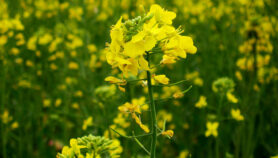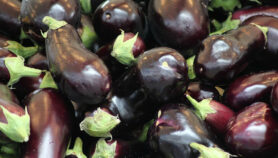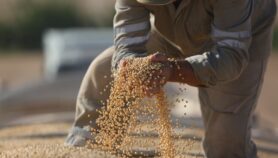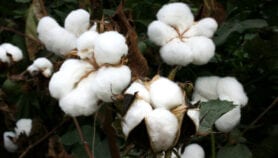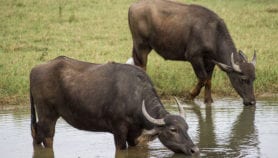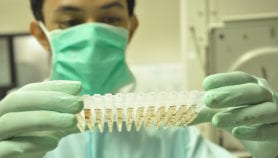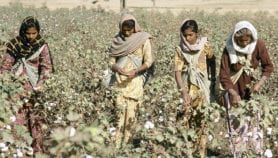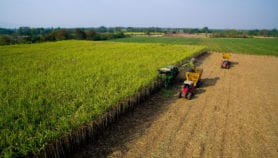By: Linda Lim
Send to a friend
The details you provide on this page will not be used to send unsolicited email, and will not be sold to a 3rd party. See privacy policy.
[SINGAPORE] The environmental organisation Greenpeace South-East Asia has accused a Thai research station of illegally distributing seeds of genetically modified papaya plants.
According to a Greenpeace statement, independent laboratory tests carried out in Hong Kong showed that packages of papaya seeds sold by the Department of Agriculture’s (DOA) research station in Khon Kaen province contained genetically engineered seeds.
Responding to the claim, Chakan Saengraksawong, director general of the DOA, says “current distribution has to be stopped to check whether GM seeds have really slipped out as some have alleged”.
The DOA started field trials growing transgenic papaya plants in 1999 at the Khon Kaen Horticulture Experiment Station in Tha Pra in 1999. Chakan says that while his station was researching GM papaya, it has not distributed any GM seeds.
With the exception of genetically modified corn and soybean imports, Thailand’s Plant Quarantine Act 1964 (Amended 1999) prohibits imports of genetically modified plants except those intended for research purposes. And distribution of GM crops from research site for consumption is illegal.
Papaya (Carica papaya) is an economically important crop in Thailand. Besides being exported, the fruit is used in a popular Thai salad dish. The plant is however susceptible to disease caused by the papaya ringspot virus (PRSV). The virus reduces fruit quality and causes characteristic spots on the fruit’s skin.
Worldwide efforts to counter PRSV disease in papaya have involved the use of biotechnology to genetically engineer papaya plants resistant to PRSV. Today, GM papayas are grown commercially in Hawaii.
Transgenic papaya resistant to PRSV has potential to be the first GM crop grown commercially in Thailand. But before this can happen the concerns of farmers, consumers, nongovernmental organisations and export markets about the safety of GMOs need to be addressed.
In addition to the DOA research, Thailand’s National Centre for Genetic Engineering and Biotechnology (BIOTEC) and its Plant Genetic Engineering Unit in Kasetsart University have also been active in papaya research.
Thailand is also a member of the Papaya Biotechnology Regional Network of Southeast Asia, which is organised by the International Service for the Acquisition of Agri-biotech Applications (ISAAA), a non-profit organisation. ISAAA brokers the transfer of proprietary biotechnology applications from companies in the West to developing countries, and the organisation has so far been involved in transfers concerned with PRSV.



